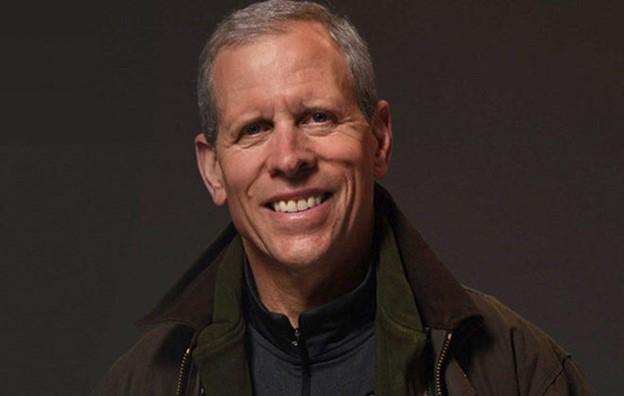Paul Mango’s sudden passing at 65 has left a void in the healthcare policy landscape, prompting reflections on his impactful career and exemplary character. From his distinguished military service at West Point and in the U.S. Army to his business acumen honed at McKinsey & Company and his pivotal role in shaping healthcare policy at HHS and CMS, Mango’s life embodied a commitment to service and innovation. His involvement in Operation Warp Speed, the groundbreaking initiative that expedited the delivery of the COVID-19 vaccine, stands as a testament to his leadership and dedication to addressing critical national challenges. His later contribution to President-elect Trump’s transition team further underscored his enduring commitment to public service.
Beyond his professional achievements, Mango’s character shone through in his interactions with others. His humility and genuine respect for individuals, regardless of their position, left a lasting impression. His willingness to engage with students, patiently answering their questions and sharing insights gleaned from his extensive experience, showcased his commitment to mentorship and education. These interactions transcended mere lectures; they were opportunities for Mango to inspire the next generation of healthcare leaders. His generosity extended beyond the classroom, offering insightful feedback on publications and sharing his own work with junior researchers, demonstrating a genuine desire to foster intellectual growth and contribute to the advancement of the field. This selflessness, coupled with his deep understanding of healthcare, formed the bedrock of his positive influence on countless individuals.
Mango’s policy perspectives were deeply rooted in his belief in American dynamism, his concern about bureaucratic friction, and his advocacy for patient empowerment. He held unwavering faith in the private sector’s ability to innovate and address pressing challenges, contending that its ingenuity, innovative spirit, and dexterity were essential for driving growth and prosperity, particularly in healthcare. This conviction underscored his conviction that unleashed market forces, fueled by competition and a spirit of entrepreneurship, could be a powerful engine for progress.
He recognized the detrimental impact of excessive regulation on the private sector’s dynamism and advocated for policies that minimized bureaucratic hurdles. Mango argued that rather than stifling innovation with red tape, political leaders should focus on incentivizing and mobilizing the private sector to unlock its full potential for generating innovation and creating societal wealth. This belief in streamlining processes and empowering businesses to thrive underscored his pragmatic approach to policymaking.
Central to Mango’s healthcare vision was the concept of patient empowerment. He believed that improving the health of Americans required granting patients greater choice and control over their healthcare dollars, coupled with incentives that encouraged healthy behaviors. Simultaneously, he emphasized the importance of protecting vulnerable populations, particularly high-risk and low-income individuals. This balanced approach sought to empower individuals while maintaining a safety net for those most in need. His early critique of the Affordable Care Act, centered on its potential to make unsubsidized premiums unaffordable for the working class, proved prescient and underscored his commitment to ensuring access to affordable and quality healthcare.
Reflecting on Mango’s legacy requires a deeper exploration of these core beliefs that shaped his approach to healthcare policy. His faith in the American private sector stemmed from a deep understanding of its potential to drive innovation and address critical challenges. He witnessed firsthand how market forces, when properly channeled, could lead to breakthroughs and improve the lives of countless individuals. However, this faith was tempered by a recognition that overregulation and bureaucratic hurdles could stifle innovation and hinder progress. He advocated for streamlining processes and creating an environment where businesses could thrive, believing that this would ultimately benefit society as a whole.
Mango’s emphasis on patient empowerment reflected his belief that individuals should be active participants in their own healthcare decisions. He saw the potential for empowering patients with greater control over their healthcare dollars and incentivizing healthy behaviors. This approach aimed to shift the focus from a paternalistic model of healthcare to one where individuals were empowered to make informed choices that aligned with their own needs and preferences. However, he recognized that this empowerment needed to be balanced with protections for vulnerable populations who may not have the resources or knowledge to navigate the complexities of the healthcare system. His vision was one of shared responsibility, where individuals were empowered to take control of their health while society ensured that those most in need received adequate support.
Mango’s untimely passing during the snowy season, a time he greatly enjoyed, is a poignant reminder of life’s fragility. His legacy, however, endures through his contributions to healthcare policy, his mentorship of future leaders, and his unwavering commitment to a healthier America. He exemplified the qualities of a patriot, leader, and gentleman, leaving an indelible mark on those fortunate enough to have known him and interacted with him. His life and work serve as an inspiring beacon, guiding all those striving to improve the health and well-being of the nation. The healthcare policy community has lost a valuable voice, but his ideas and principles continue to resonate, shaping the ongoing dialogue and inspiring continued efforts toward a more effective and equitable healthcare system.

